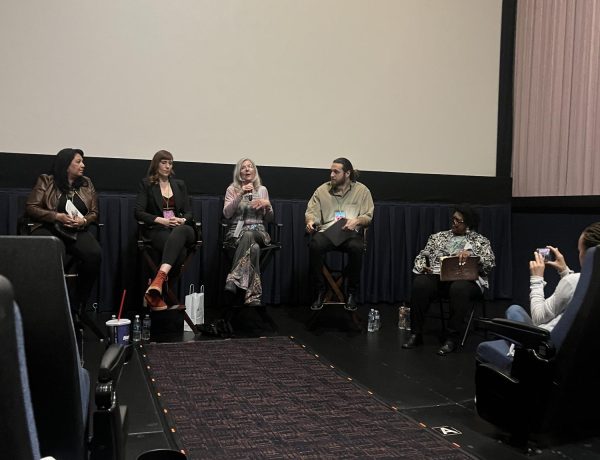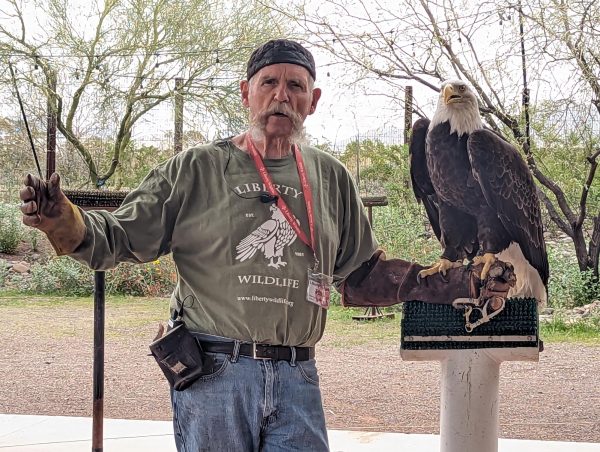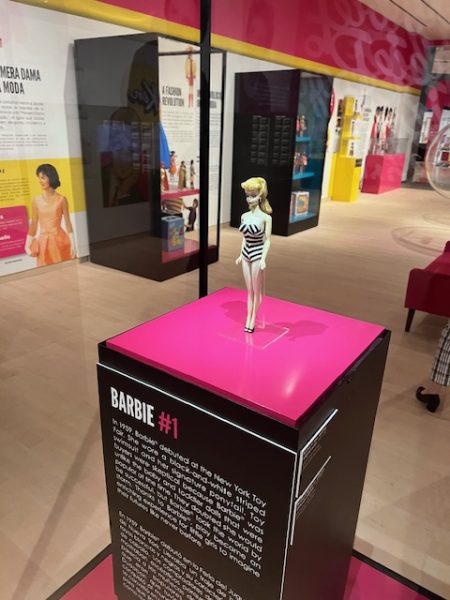Sportscasting jobs available for those who get creative
January 5, 2015
How can an aspiring sports broadcaster use nontraditional approaches to break into the business without an expensive degree?
The sportscasting industry is very competitive. To make matters worse, Education Portal forecasts that jobs in conventional television and radio markets will see no growth through 2022.
That being said, some optimists exist in regards to opportunities in traditional markets. Brian Lowry raises interesting points in his column in the August 2013 issue of Variety Magazine. He contends that the launch of Fox Sports 1 early this year, as well as the recent trend of conferences and teams with their own channels, has created a current and future shortage of “credible broadcasters.”
The real key to breaking into sports casting could involve looking outside the proverbial “box” toward nontraditional media outlets and more obscure sports. Chris Jensen is the head of the Motion Picture/Television Production Department at SCC. He sees the sportscasting industry as growing rapidly. He said the greatest opportunities are at the high school and college level, in new sports and in new ways to broadcast. He stresses developing a traditional skill set but to be looking at where the industry is expanding.
That expansion seems to be online. Websites like sportjuice.com and gametimeradio.net offer a relatively inexpensive platform for high schools, minor leagues, collegiate and amateur sports to broadcast their games. All of these games need broadcasters and while they may offer very little or no pay, it’s a way to build a resume that could lead to a fruitful position down the road.
“This career is not a straight line,” Jensen said. “If you are pursuing a goal, opportunities will present themselves.”
A great way to take advantage of those opportunities is to record a “demo reel” that you can send to schools and sports organizations.
Maren Maclean Mascarelli is a theatre instructor at SCC and has done professional voice work. She said, “I think they (demo reels) are essential. On a scale of one to 10 of importance, I think they are a 10.”
Mascarelli suggested that a demo reel be around five minutes in length and be composed of several 30 to 45 second clips. These clips should be varied in content and style to show a wide range of abilities. Examples of pre- and post-game segments along with play-by-play of dramatically different sports in different styles can get the attention of prospective employers. She also said it’s a good strategy to do a segment or segments with another person who has a very different voice to show how you can work with a color commentator or analyst. A color commentator reports “color” (filler material) between the play-by-play descriptions done by the lead sportscaster.
Aspiring broadcasters actually don’t need to look far for inspiration in this endeavor. Erik Andersson does the play-by-play internet broadcasts for SCC’s football, baseball and basketball games. Andersson, who has previously broadcast games for the Kansas City Royals minor league affiliate, is a self-taught broadcaster with a degree in psychology. He said he learned most of his play-by-play skills through studying “The Art of Sportscasting,” a book by Tom Hedrick. He said networking is the key, as he landed his first big job through contacts he made while taking broadcasting courses at a local community college.
He puts most of the emphasis on the individual for breaking into the industry. He said the willingness to work an internship and start at the bottom and pay your dues are necessary to get into the industry. Simple things like being prepared and professional can give you the advantage over other broadcasters.
Brian Clapp recounts advice from broadcasting veteran Doug McLeod in his July 24, 2013 blog, “Five Tips You Need to Follow if You Want a Play-By-Play Job.” Start out practicing alone calling a game on your TV or computer. Work up to arranging for an area to practice at live events and volunteer to do a web broadcast for them. Use this work to get recordings of yourself to analyze and change your delivery and gain material for demo tapes.
With a few basic tools and the right attitude you can be well on your way to a career as a sports broadcaster.












